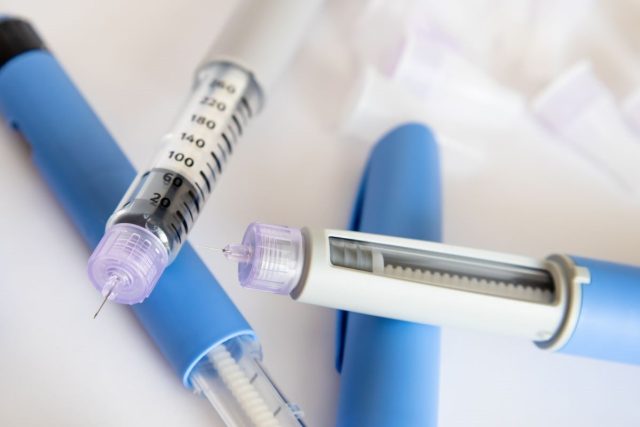Risks for all-cause mortality, adverse cardiovascular events, acute kidney injury, and adverse kidney events lower versus GLP-1 RA
By Elana Gotkine HealthDay Reporter
MONDAY, Aug. 12, 2024 (HealthDay News) — For patients with type 2 diabetes, treatment with tirzepatide (a dual glucagon-like peptide 1 and glucose-dependent insulinotropic polypeptide receptor agonist) is associated with lower risks for all-cause mortality and adverse cardiovascular and kidney events compared with glucagon-like peptide 1 receptor agonist treatment (GLP-1 RA), according to a study published online Aug. 12 in JAMA Network Open.
Min-Hsiang Chuang, M.D., from the Chi Mei Medical Center in Tainan, Taiwan, and colleagues conducted a retrospective cohort study using U.S. Collaborative Network of TriNetX data from individuals with type 2 diabetes aged 18 years or older initiating tirzepatide or GLP-1 RA between June 1, 2022, and June 30, 2023. Data were included for 14,834 patients treated with tirzepatide and 125,474 treated with GLP-1 RA.
The researchers found that 0.6 and 1.1 percent of patients in the tirzepatide and GLP-1 RA groups, respectively, died after a median follow-up of 10.5 months. Tirzepatide treatment was associated with a lower risk for all-cause mortality, major adverse cardiovascular events (MACEs), the composite of MACEs and all-cause mortality, kidney events, acute kidney injury, and major adverse kidney events (adjusted hazard ratios, 0.58, 0.80, 0.76, 0.52, 0.78, and 0.54, respectively). Compared with GLP-1 RA, treatment with tirzepatide was associated with greater decreases in glycated hemoglobin (treatment difference, −0.34 percentage points) and body weight (treatment difference, −2.9 kg).
“These insights advocate for the integration of tirzepatide into therapeutic strategies for managing type 2 diabetes and highlight its potential to enhance current clinical practice,” the authors write.
Copyright © 2024 HealthDay. All rights reserved.



















